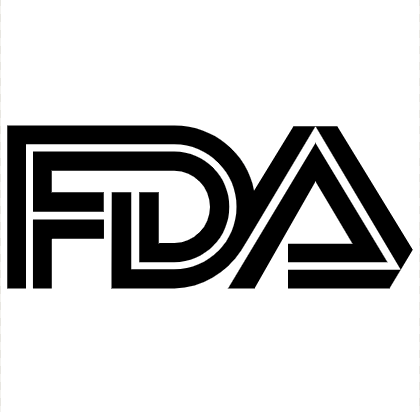FDA Approves Evinacumab for Homozygous Familial Hypercholesterolemia
The indication is the first granted to an ANGPTL3 inhibitor in the US.

The US Food and Drug Administration (FDA) has approved evinacumab-dgnb (Evkeeza) for the treatment of homozygous familial hypercholesterolemia (HoFH).
The approval, granted to Regeneron Pharmaceuticals, provides patients of the ultra-rare genetic condition an opportunity to more effectively reduced characteristically high low-density lipoprotein cholesterol (LDL-C) levels associated with HoFH. It also marks the first angiopoietin-like 3 (ANGPTL3) inhibitor approved for marketed use in the US.
The Disease
HoFH is a rare disease contracted by inheritance which affects approximately 1300 patients in the US. It occurs when a copy of familial hypercholesterolemia (FH)-causing genes is inherited from each parent, resulting in heightened risk of premature atherosclerotic disease and cardiac events.
Patients with the condition cold experienced LDL-C levels exceeding 400 mg/dL.
The Drug
Evanicumab is a human monoclonal antibody designed to bind to and inhibit function of ANGPTL3, after discovery and observed interpretation of the HoFH-driving gene family more than 20 years ago.
Regeneron’s proprietary genetically-engineered mouse platform, endowed with a genetically-humanized immune system, helps produce fully-human antibodies, from which evinacumab—among other brand therapies—are developed.
Administered based on patient weight (15mg per kg), evinacumab is a once-monthly intravenous (IV) infusion.
The Trial
The approval for evinacumab was granted on the basis of findings from a pivotal phase 3 trial showing the addition of the therapy to standard lipid-lowering care resulted in nearly halved LDL-C levels among patients with HoFH by 24 weeks versus placebo.
The ELIPSE HoFH trial assessed 65 patients randomized to either 15 mg/kg evinacumab IV every 4 weeks (n = 43) plus lipid-lowering therapies, or lone lipid-lowering therapies (n = 22). At baseline, mean LDL-C across both treatment arms was 255 mg/dL.
At week 24, treated patients had reduced LDL-C by a mean rate of 47% from baseline, while placebo patients reported a 2% increase (49% improvement with evinacumab; P <.0001). Investigators additionally observed a mean 132 mg/dL reduction in LDL-C versus placebo (P <.0001), as well as significant reductions in key secondary endpoints including apolipoprotein B (ApoB), non-high-density lipoprotein C (non-HDL-C), and total cholesterol, versus placebo.
What’s more, investigators observed LDL-C lowering capability in the patients considered most difficult to treat for HoFH: those who have not responded to other therapies due to limited LDL receptor function, or “null/null” patients.
LDL-C reduction observed with evinacumab was maintained through week 48 of the open-label trial period.
Common adverse reactions included nasopharyngitis, influenza-like illness, dizziness, rhinorrhea, nausea, pain in extremity, and asthenia.
Perspectives
Evinacumab could represent a “potentially transformational new treatment” for HoFh, said Daniel J. Rader, MD, professor and chair of the Department of Genetics in the Perelman School of Medicine of the University of Pennsylvania.
“Existing therapies for HoFH are insufficient for the majority of patients,” Rader said in a statement. “Evkeeza, through its unique mechanism of action, was shown to reduce LDL-C levels in patients with all forms of HoFH, even those with nearly no LDL receptor activity, and represents a highly meaningful improvement in our ability to control LDL-C levels in patients with HoFH."
As the first FDA-approved ANGPTL3 inhbitor, evinacumab also represents a harnessing of genetic insights and pioneering technology, said Regeneron president and chief scientific officer George D. Yancopoulos, MD, PhD.
Perhaps most importantly of all, the new therapy and its evidenced benefit for LDL-C in patients with HoFH provides a more opportune livelihood for the young, burdened patient population.
"The FDA's approval of Evkeeza is a watershed moment for individuals born with HoFH, a severe form of familial hypercholesterolemia," said Katherine A. Wilemon, founder and chief executive officer of the FH Foundation. "Those living with HoFH have faced devastatingly high LDL-C levels and an uncertain future.”